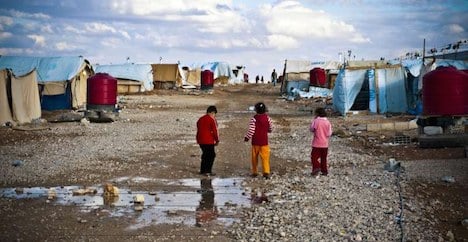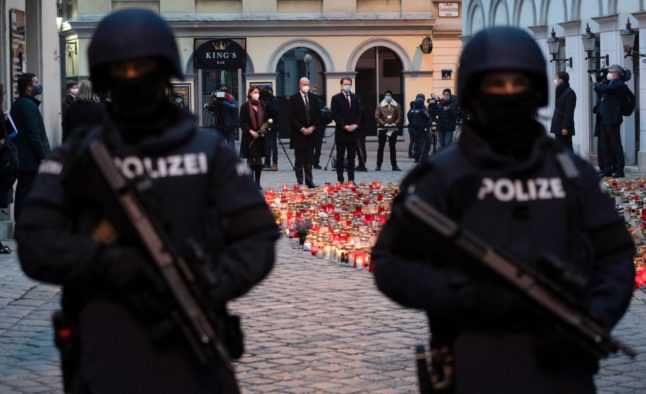ISLAM
Terrorism concerns for Syria jihadists
Austrian authorities have expressed concern at the potential risks associated with Muslim fighters returning from jihad in Syria, according to a report in the daily Kleine Zeitung.
Published: 3 July 2014 11:11 CEST

Palestinian children in a Syrian refugee camp. Photo: UNHCR/B.Diab
With the recent sentencing of a young Viennese man with Turkish roots to 21 months in jail for attending a terrorist training camp on the Turkish-Syrian border, anti-terrorism officials are highlighting their worries about the imminent return of other Austrian permanent residents from the conflict region.
According to estimates from the Federal Agency for State Protection and Counter-Terrorism, close to a hundred people have travelled from Austria to Syria as part of their jihad – the Islamic tradition of fighting in a 'holy war.'
So far, around 20 of those hundred young men and women have been killed in Syria's civil war.
Already, 45 of the jihadists have returned to life in Austria, and therein lies the concern.
Possibly radicalized, almost certainly shocked and disturbed by witnessing – and in some cases, participating in – the armed struggle there are substantial risks that their reintegration into Austrian society may not be easy.
"If I knew what goes on in their heads, I would be very happy," said one senior official.
The massacre of four people at the Jewish Museum in Brussels was carried out by a French man who had fought in Syria. With an estimated 800 people in France expected to fight in Syria, threats of jihad in Spain, and jihadist recruiters active in Germany, authorities are naturally concerned. The latest country to express those concerns is Norway.
Until now, there has been no specific threat identified in Austria, however at least one high-profile imam in Graz was arrested on suspicion of forming a terrorist organization.
European Syria repatriates are not automatically a threat: "The daily confrontation with violence has decreased [their] inhibitions [against committing violence] in some, but others also return to Austria completely traumatized by the war", stated one expert. "The trip to Syria is like a vacation. … The trip costs 200 euros."
Of the 100 Syrian fighters more than half are asylum seekers from Chechnya and other Russian republics. More than 30 are Austrian citizens of Bosnian and Turkish origin (second or third generation). Only a small fraction originate from Syria.
Interior Minister Johanna Mikl-Leitner has proposed withdrawing citizenship, or canceling asylum requests for those who go to fight in Syria.
But this is easier said than done, according to one senior official: "We have the problem that we often lack the hard evidence required to successfully complete the proceedings before the court."
Url copied to clipboard!


 Please whitelist us to continue reading.
Please whitelist us to continue reading.
Member comments